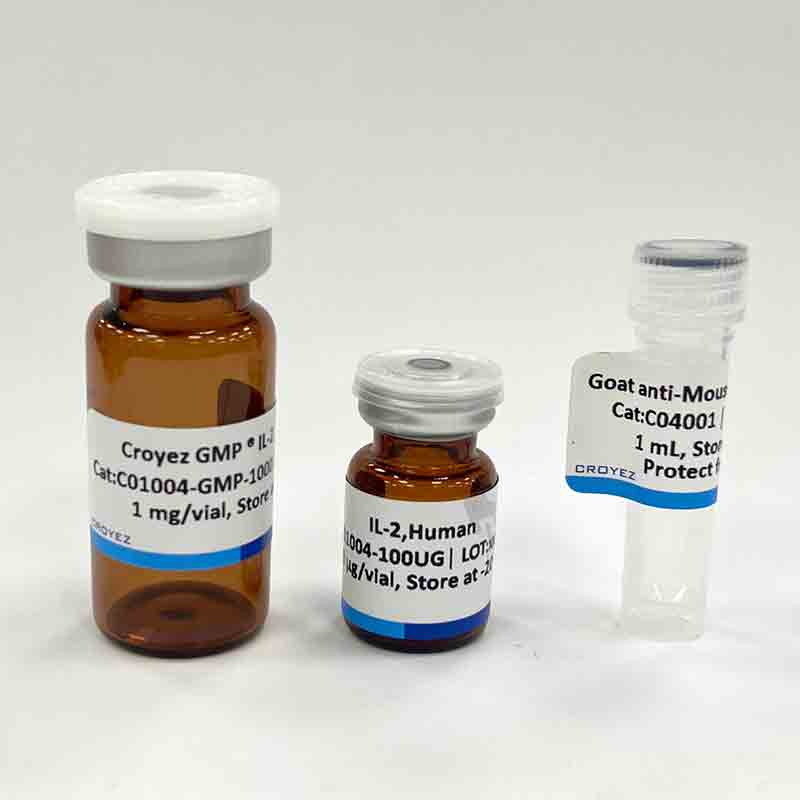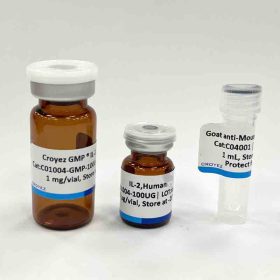Product Description
Interleukin 6 (IL-6) is an interleukin that acts as both a pro-inflammatory cytokine and an anti-inflammatory myokine. In humans, it is encoded by the IL6 gene. In addition, osteoblasts secrete IL-6 to stimulate osteoclast formation. Smooth muscle cells in the tunica media of many blood vessels also produce IL-6 as a pro-inflammatory cytokine. IL-6’s role as an anti-inflammatory myokine is mediated through its inhibitory effects on TNF-alpha and IL-1, and activation of IL-1ra and IL-10.
Sequence:
MGRLEEDAKGDATSDKMLFTSPDKTEELIKYILGKISAMRKEMCEKYEKCENSKEVLAENNLNLPKMAEKDGCFQSGFNQETCLMRITTGLVE
FQIYLDYLQKEYESNKGNVEAVQISTKALIQTLRQKGKNPDKATTPNPTTNAGLLDKLQSQNEWMKNTKIILILRSLEDFLQFSLRAIRIM with polyhistidine tag at the C-terminus
Source:
Escherichia coli
Endotoxin Test:
<0.1 EU per 1 μg of the protein by the LAL method.
Activity:
Measure by its ability to induce proliferation in T1165.85.2.1 cells. The ED50 for this effect is <1.5 ng/mL.
Purity:
>98% as determined by SDS-PAGE. Ni-NTA chromatography
Formulation:
The protein was lyophilized from a solution containing 1X PBS, pH 7.4.
Reconstitution:
It is recommended to reconstitute the lyophilized protein in sterile H2O to a concentration not less than 100 μg/mL and incubate the stock solution for at least 20 min to ensure sufficient re-dissolved.
Storage:
Lyophilized protein should be stored at -20°C. Upon reconstitution, protein aliquots should be stored at -20°C or -80°C.
Note:
Please use within one month after protein reconstitution.





